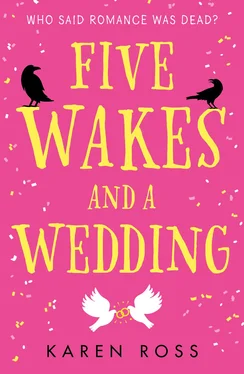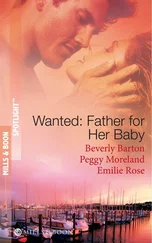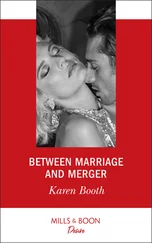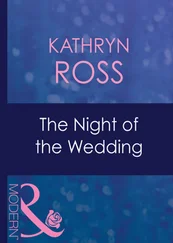1 ...6 7 8 10 11 12 ...16 The Primrose Hill of her childhood had been a different place. Back then it was just another anonymous London backwater, albeit one with a bohemian edge, and the family had moved there only because her father’s fast-track junior banker’s salary wouldn’t stretch to a house in Hampstead.
Just look at it now. Home to so many of the best-known people in Britain. And, increasingly, overseas owners who boasted to their friends about their charming home-from-one-of-their-other-homes in a neighbourhood that had grown stealthily into Britain’s answer to Beverly Hills. Gloria, however, retained her affection for the Primrose Hill she had once known, and especially for Noggsie, whose General Hardware Store had been a local landmark for longer than she could remember.
As the years passed, Noggsie’s business had survived and thrived. Car showrooms, coal merchants, computer shops, curry houses, coffee shops … butchers, bakers, bookshops, betting shops, builders’ merchants … dry cleaners and drapers … fish-and-chip shops, furniture shops, florists … laundromats and lending libraries … glaziers, greengrocers, Apple Stores … Their custodians came and went, but the General Hardware Store was a permanent fixture, a family business that continued undaunted by the changes happening around it, rather like Ian Beale in EastEnders , which was one of Gloria’s many guilty pleasures.
This time last year, Noggsie’s shop was still a much-loved anachronism, its green-tiled façade a shabby yet proud island in the present sea of Michelin-starred restaurants, cupcake shops, art galleries, pampering places, frock shops, interior designers, more cupcake shops (mostly gluten-free; some of them also vegan), wine bars and – briefly – a pop-up shop that specialised in miniature replicas of fairground attractions whose price tags might reasonably have been thought sufficient for the full-size originals.
Noggsie himself had remained in excellent health for eighty-five of his eighty-six years. ‘It’s the work and the customers that keep me going,’ he insisted whenever Gloria or anyone else asked whether it wasn’t time he relaxed and took it easy. ‘Besides, if I weren’t here, who else would sell you a couple of curtain hooks or half a dozen nails?’ In Noggsie’s opinion, blister packs were the work of the devil. No matter what you needed, from a kettle to a casserole dish, from a single tap washer to a wooden toilet seat, the chances were high that Noggsie had it in stock.
He had been a kind man, too. ‘Hear you’re involved in some urban gardening project,’ he’d said to Gloria when she popped in on an errand to collect dishwasher salt for her mother. ‘Take these.’ And Noggsie had produced half-a-dozen planting troughs along with three bags of compost, refusing all offers of payment.
Now Noggsie was gone and the General Hardware Store along with him. It had been shut for several months, ever since the day its proprietor collapsed across the counter with the first in a series of strokes, and was one of several shops in the high street that continued to stand empty. It had come an unwelcome surprise to many of the locals – Gloria included – to discover that even Primrose Hill was not immune from the toxic effects of hard times, greedy freeholders, ridiculous business rates, and the residents’ own growing tendency to go shopping without ever leaving home.
Whoops!
Gloria realised she had been lost in her trip down memory lane and stood up hastily, a second or two later than the rest of the congregation. She fumbled for the order of service and stood in respectful silence as the three members of a boy band whose strategic failure to win Britain’s Got Talent a couple of years earlier had launched them on the path to international stardom (and adjoining mansions in Regent’s Park) began their acapella arrangement of ‘Praise My Soul, the King of Heaven’.
The hymn’s final notes died away and everyone sat down again. All except for Eddie Banks. He inched out of the pew, negotiating around his two grown-up children, Zoe and Barclay, then walked purposefully towards the lectern.
‘Noggsie was my neighbour, my friend, and my inspiration.’ Eddie Banks paused as if he expected to be challenged about what he had just said. ‘He watched me grow up, and I watched him grow old.’ Unexpectedly eloquent for Banks, Gloria thought. He was a man who tended to call a spade a bloody shovel. Or worse. She wondered how many of his PR people had been working on the eulogy.
Everybody present knew the story of Eddie Banks. Local boy made billionaire. Born in a council house along Chalcot Road, and now reminding his captive audience about the car cleaning business he’d started aged nine, equipped only with a bucket-load of ambition, a green sponge and a jumbo bottle of Fairy Liquid, purchased with his Christmas money from Noggsie at the General Hardware Store.
‘Noggsie taught me so many things,’ Eddie Banks continued. ‘But most important of all, he taught me to dream big. When I told him I had no time to clean more cars, he told me to recruit my friends to help out. And that wasn’t just so he could sell more Fairy Liquid.’
A pause for gentle laughter. ‘When I told him my first business was about to go bust and my best bet was to go work for someone else, he told me to get over myself. And fail better the next time round. Then later, once I’d stopped failing,’ a modest shrug, ‘and could afford to buy Noggsie a decent dinner or two, I asked him … “Noggsie,” I said, “you’ve told me I’m capable of conquering the world, and I believe you. But what about you? What is it that you dream of? What is that you want? And how can I help you have it?” You know what he replied? He told me, “I’m blessed to have found a way to earn a living doing something that contributes to others, yet doesn’t rob my soul. I’m lucky enough to have found my calling, which allows me to continue the tradition of helping my community and to know that in my own small way, I’m making a difference.”’
Banks’s excellent eulogy made Gloria think of Nina. She imagined her friend casting a professional eye over the proceedings. What was it Nina had said the day before? About the way funerals were changing, with more people drawing up plans for their own farewell appearance while they were still alive and well. A question of matching the occasion to the person, she had explained.
Gloria made a mental note to tell Nina the Traders Association had organised a wreath in the shape of a giant hammer.
Then she realised she could do so much better.
At the champagne reception that followed Noggsie’s funeral, Gloria cornered Eddie Banks and told him about Nina and her ideas about dragging funerals into the modern era.
Banks immediately offered to do what he could to help, and Gloria had been impressed that someone so successful was prepared to go out of his way to help a woman he’d never even met achieve her dream.
Noggsie would definitely have approved.
And later, listening to the way Nina talked – enthusiastically yet respectfully – about the people she intended to help once she had refurbished Noggsie’s shop, Gloria was convinced Happy Endings would have had his blessing.
Here I am in Primrose Hill, one of the most fashionable parts of London, and it ought to be wonderful.
But it’s not.
I’ve spent all morning watching the world stroll past my shop window oblivious to my presence.
All morning, feeling I don’t fit in.
All morning, every morning.
Monday to Friday.
Afternoons, too.
It’s been an entire week and I almost wish I was back in Siberia. When Jason banished me to the back office, at least I had a sense of belonging.
Читать дальше












